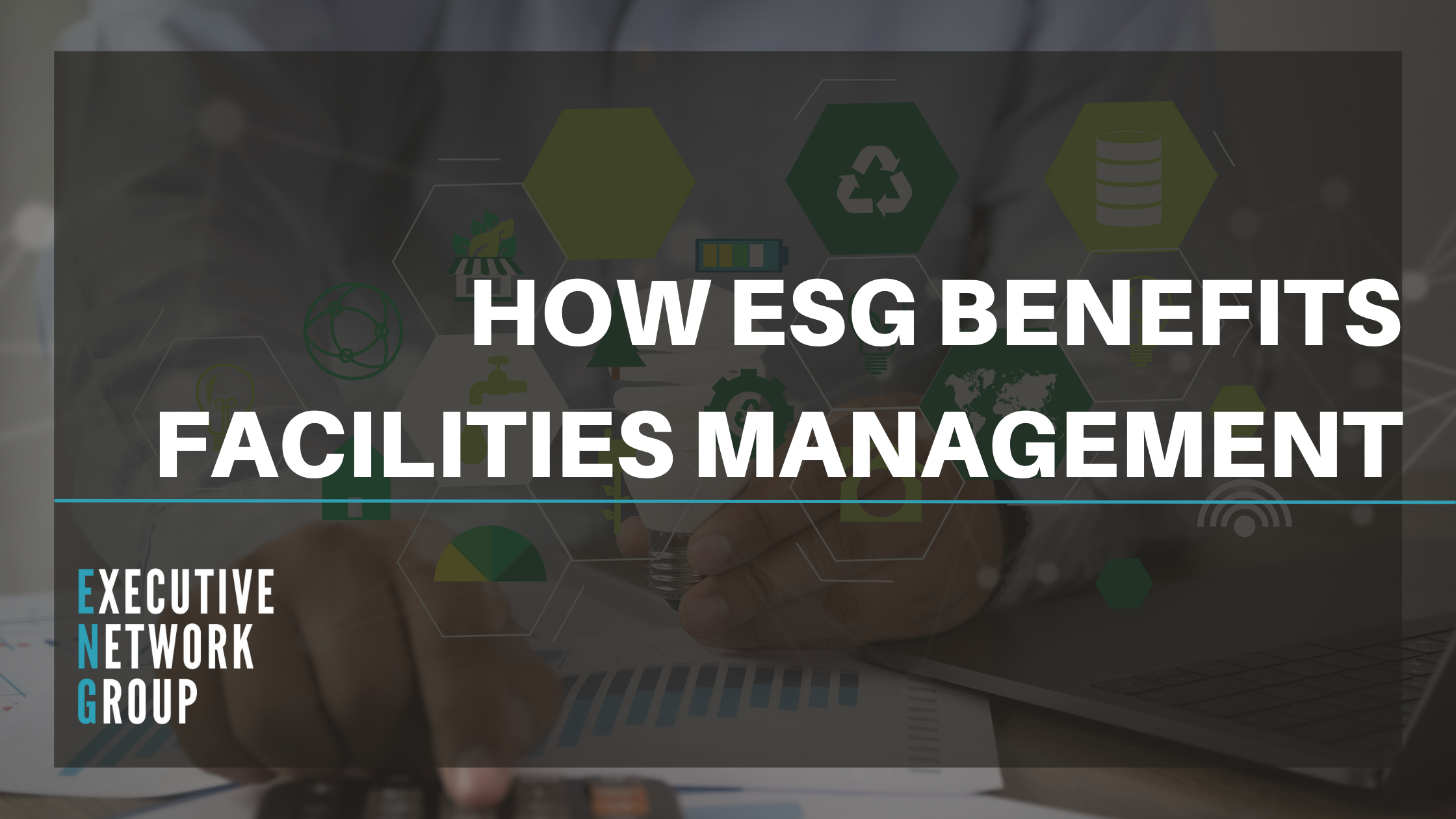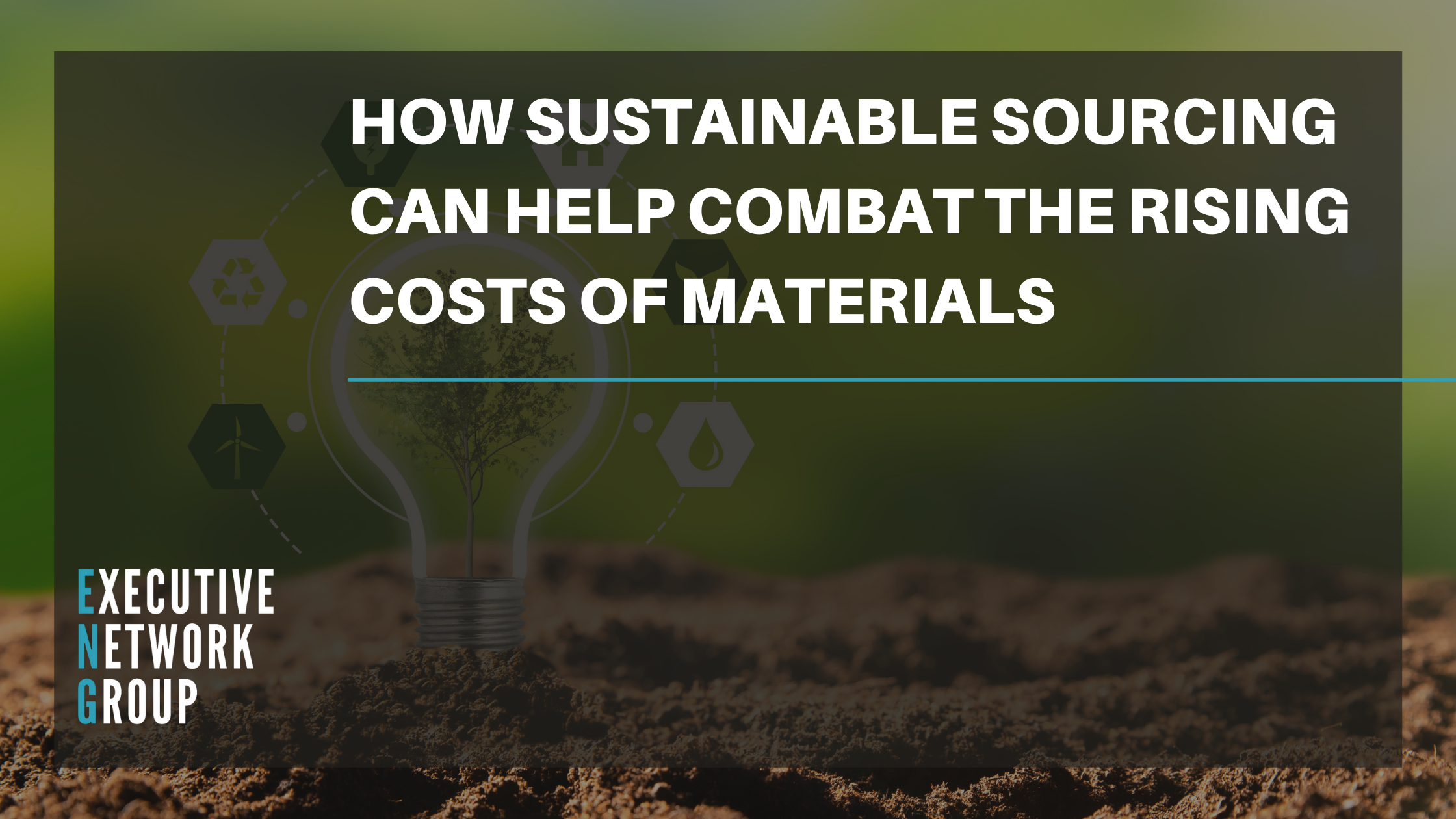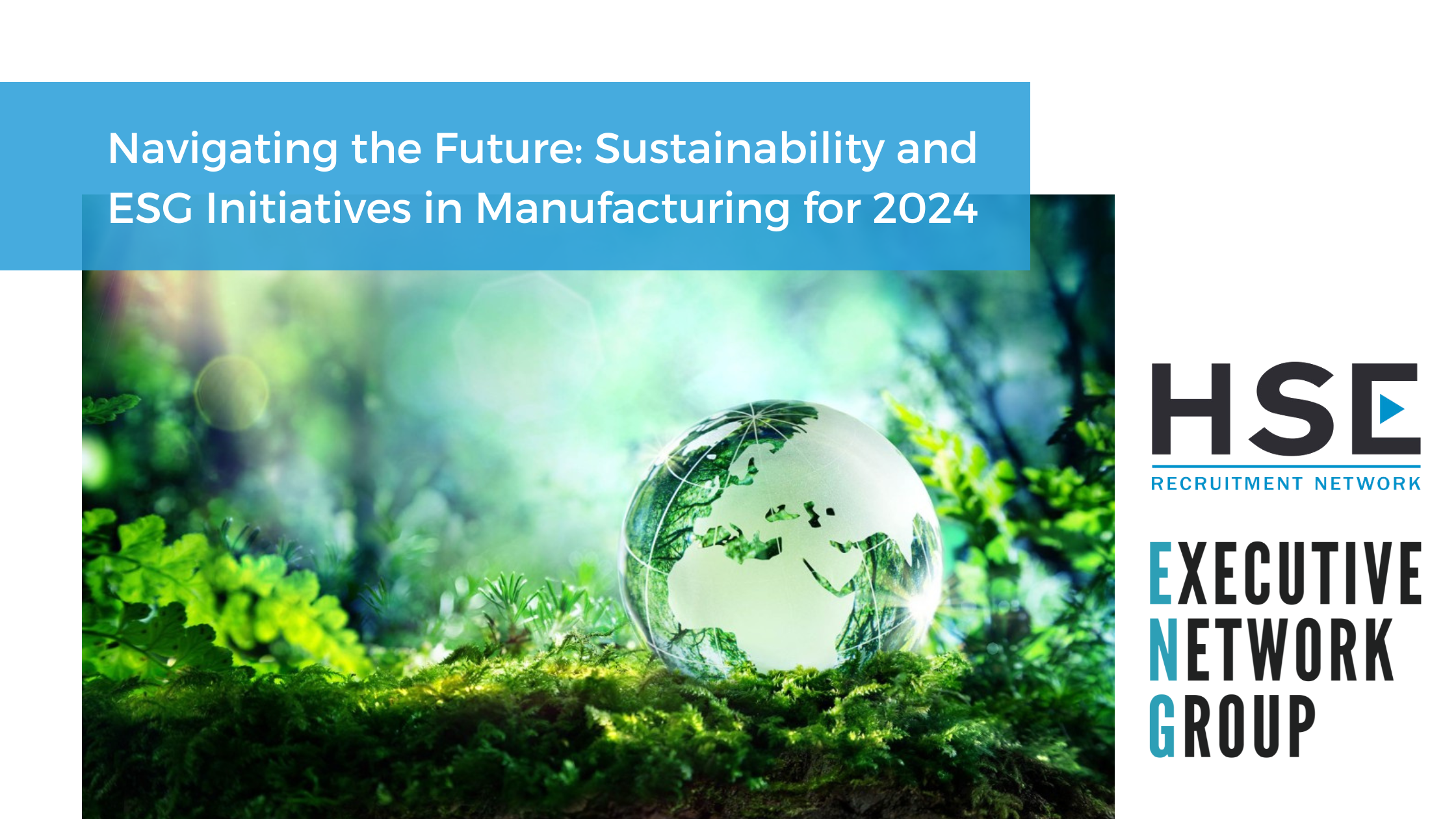How ESG benefits Facilities Management

While more FM organisations are beginning to get on board with ESG, its benefits are becoming more and more apparent. Not only does it ensure that environmental needs are met - but according to Entouch, “the use of ESG in managing a business offers additional benefits that derive from the underlying technologies required to consider ESG in the first place.
Big data analytics, wireless sensors, and other advancements are necessary to manage and collect data. The same resources can be applied to reduce the operating expenses for business, providing a push to an organization's profitability and energy efficiency”.
The health of our planet is of paramount importance. All the business initiatives an organisation makes has not only a business impact but an environmental one as well. Alcumus states that the UK’S FM market is one of the largest markets in Europe and with that “FM professionals are critical to delivering safe, sustainable and high performing environments were implementing sustainable practises is not an option anymore, it’s a must”.
ESG splits into three categories: Environment, Social and Governance.
Environment: Centred around topics such as waste, recycling, reducing carbon emissions, pollution and battling climate change. The E in ESG focuses on maintaining our earth’s ecosystem. According to Antea Group, “environmental issues are global and interconnected. ESG frameworks condense the concept into measurable units to help investors and leaders understand a company’s environmental risks”.
Social: This focuses on businesses’ social responsibilities and maintaining their relationships with clients and staff. This covers the social aspect of sustainable investing. For example, clean air is a great way to improve the all-round health of your employees, which in turn, will see a reduction in sick days. These schemes are all part of the social aspect of ESG and prove to be of huge worth to businesses that are committed to their social responsibilities.
Governance: “The “G” in ESG refers to the governance factors of decision-making, from sovereigns’ policymaking to the distribution of rights and responsibilities among different participants in corporations, including the board of directors, managers, shareholders, and stakeholders” – S&P Global
In this blog, we will be focusing on the environmental aspects of ESG - diving into how this benefits Facilities Management companies and the importance of adhering to sustainability policies.

Being successful with ESG
Being successful when it comes to ESG is all about setting clear sustainability goals and seeing them through. These goals can be about offsetting the amount of carbon an organisation uses, more diverse internal recruitment, making more sustainable investments.
“The positive effects of implementing an ESG plan have been validated by countless studies, pointing to the fact that buildings that have a clear sustainability goal will see their ROI grow.” – Black Dox
To craft these goals - Facilities Management professionals set KPIs and use data to implement sustainable strategies that will best aid their company moving forward.
Rising above their competitors
It is a well-known fact that companies that take care of their ESG principles are far more likely to attract customers, employees and crucially - investors. Business ethics are critical to investors’ decision-making and they look for ethical, social and sustainability ethics when choosing if a business is worth investing in.
“The principles of ESG are being adopted by both small and large corporations throughout the world. The trend is set to continue, which makes ESG one of the most essential factors that investors are considering when making decisions. Companies that are not ESG-compliant are considered a serious risk and rarely get the funding they need. More and more investors are choosing ESG-friendly companies as they are better long-term investments. Additionally, all major LPs are actively pushing investors to find ESG compliant businesses as a risk mitigation move” – Industry Today
If an investor does not have confidence in the board of a potential investment opportunity – they will simply not pour funds in. Brand reputation is more important now than it’s ever been, and a brand that chooses not to buy into ESG can be seen as non-committal to the ongoing battle of protecting the environment. Especially climate change – which is a massive worldwide issue.
FM businesses that do not buy into ESG risk being left behind. More ethical decisions being made in the boardrooms down are more attractive to potential investors and customers. Buyers are way more likely to want to do business with suppliers who have tailored their brand to be one of inclusivity, sustainability, and solid ethical practices. This can create a huge problem for organisations that believe they can operate without adhering to these sustainability policies.

